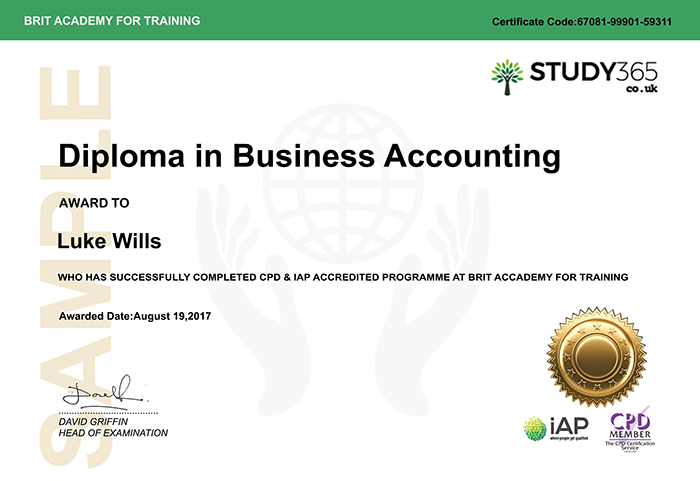- Duration / Course length: Upto 10 Hours Start now
- Accredited by: CPDiAP
- Certificates:
- Course delivery: This course is delivered in video format
Course details
Winning and retaining new business in today’s competitive environment is ultimately down to the strength of your sales team. Sales team carry much responsibility for organisational success and must possess a breadth of skills and behaviours to achieve their goals. So if you want to exceed tough targets, achieve higher sales results enhance your sales skills and motivate your sales team to greater profitability.Today’s sales management task is very demanding and challenging and therefore three ‘key components’ especially require close attention for developing individuals, building the team and achieving the task. The Sales Management course is designed to equip and empower sales leaders to motivate their staff and build a successful, dynamic sales team.
Diploma in Sales Management provides detailed information about the principles, practices and tools involved in all aspects of the selling process. The course begins by introducing you to the role of sales in everyday life and how selling is vital in all aspects of business. This course know-how is underpinned by regular research into buyers’ views of salespeople and our sales process and models have been developed and refined with many years of field testing. The content of our sales Management Diploma consist of valuable topics and secrets selling tips.
This online training course is comprehensive and is designed to cover the following key topics are listed under the curriculum. This course has been designed for 40 guided learning hours.
COURSE CURRICULUM
1. SALES MANAGEMENT FUNDAMENTALS
- Introduction to Sales
- Identifying Potential Customers
- Effective Sales Process
- Creating a Sales Structure & Managing Sales Team
- Sales Prospecting
- The Science of Trust
- The Secrets of the Buying Behaviours
- Range of Sales Transactions
- Communication Skills for Sales.
- The Sales Cycle
- Analysing Your Sales Performance and Progress.
- Introduction to Sales Secrets
- Sales Systems
- Sales Scripts
- Measuring your Sales Performance
- Introduction to Key Account Selling
- Sales Planning
- Sales Call Techniques
- The Sales Cycle_1
- Sales Process
- Sales Communication
- Sales Plan and Skills
- Mock Exam: Diploma in Sales Management – Online
You will have 12 Months access to your online study platform from the date you purchased the course. The course is self-paced so you decide how fast or slow the training goes. You can complete the course in stages revisiting the training at any time.
Method of Assessment:
At the end of the course learners will also take an online multiple choice questions assessment test. This online multiple choice questions test is marked automatically so you will receive an instant grade and know whether you have passed the course.
Certification:
Successful candidates will be awarded Diploma for “Sales Management”.
Why Choose Us?
- Our courses represent outstanding value for money
- High quality e-learning study materials and mock exams.
- Each course is designed by industry experts, using an innovative interactive learning approach.
- Includes step-by-step guided videos tutorials.
- Benefit of applying NUS extra Discount Card.
- 24/7 Access to the Online Learning Portal.
- Anytime & Anywhere Learning.
- Recognised Accredited Qualification.
- Access Course Content on Mobile, Tablet or Desktop.
- Study in a user friendly, advanced online learning platform.
- Excellent customer service and administrative support.
Ultima actualização em 14 March, 2024
Eligibility / Requirements
- Learners must be age 16 or over and should have basic understanding of the English Language, numeracy, literacy and ICT.





